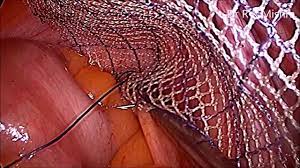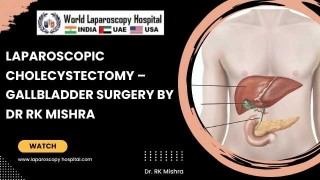Pre and Postoperative Care for Laparoscopic Cholecystectomy
Add to
Share
1,962 views
Report
2 years ago
Description
This video demonstrates Pre and Postoperative Care for Laparoscopic Cholecystectomy: Ensuring Successful Surgical Outcomes Introduction: Laparoscopic cholecystectomy, a minimally invasive surgical procedure for removing the gallbladder, has become the gold standard for treating gallbladder-related conditions. To ensure successful surgical outcomes and promote patient recovery, comprehensive pre and postoperative care are of paramount importance. This article aims to highlight the essential aspects of pre and postoperative care for laparoscopic cholecystectomy, emphasizing the significance of patient evaluation, preparation, and diligent postoperative management. Preoperative Care: Patient Evaluation: A thorough medical history review, physical examination, and diagnostic tests enable the surgeon to assess the patient's overall health status, identify any potential risks, and tailor the surgical approach accordingly. Education and Informed Consent: It is vital to provide patients with detailed information about the procedure, expected outcomes, and potential risks to obtain their informed consent and ensure realistic patient expectations. Fasting and Bowel Preparation: Patients are advised to fast before the surgery to minimize the risk of aspiration. In certain cases, bowel preparation may be necessary to clear the digestive system, facilitating a safer surgical procedure. Medication Management: The surgeon reviews the patient's medications and may adjust or temporarily discontinue certain drugs to minimize potential complications during surgery. Prophylactic Antibiotics: Administration of antibiotics before surgery reduces the risk of infection, as laparoscopic cholecystectomy involves the introduction of surgical instruments into the abdominal cavity. Anesthesia Assessment: The anesthesiologist evaluates the patient's fitness for anesthesia, taking into account any underlying medical conditions or allergies. Postoperative Care: Recovery Room Monitoring: After the surgery, patients are closely monitored in the recovery room to ensure stable vital signs and a smooth transition from anesthesia. Pain Management: Appropriate pain management strategies, such as the administration of analgesics, are employed to minimize postoperative discomfort. Wound Care and Dressing Changes: Proper care of surgical incisions, including sterile dressing changes and monitoring for signs of infection, promotes optimal wound healing. Early Mobilization: Encouraging early ambulation and movement helps prevent complications, such as blood clots, and promotes faster recovery. Diet and Oral Intake: Gradual reintroduction of oral intake, starting with clear liquids and progressing to a regular diet, is initiated based on the patient's tolerance and surgical outcomes. Complication Monitoring: Close monitoring for potential complications, such as bleeding, infection, bile duct injury, or adverse reactions to anesthesia or medications, allows for timely intervention and appropriate management. Medication Administration: Prescribed medications, including analgesics, antibiotics, and other specific postoperative drugs, are administered according to the surgeon's instructions. Patient Education and Discharge Planning: Patients and their caregivers receive comprehensive instructions on wound care, medication management, signs of complications, and follow-up appointments. Discharge planning ensures a smooth transition to home care. Conclusion: Pre and postoperative care play vital roles in ensuring successful outcomes and promoting patient recovery in laparoscopic cholecystectomy. Thorough patient evaluation, education, and preparation before surgery, combined with diligent postoperative management, contribute to optimal surgical outcomes, faster recovery, and improved patient satisfaction. By following a comprehensive care plan, healthcare providers can minimize risks, enhance patient comfort, and provide a solid foundation for a successful surgical journey.
Similar Videos






